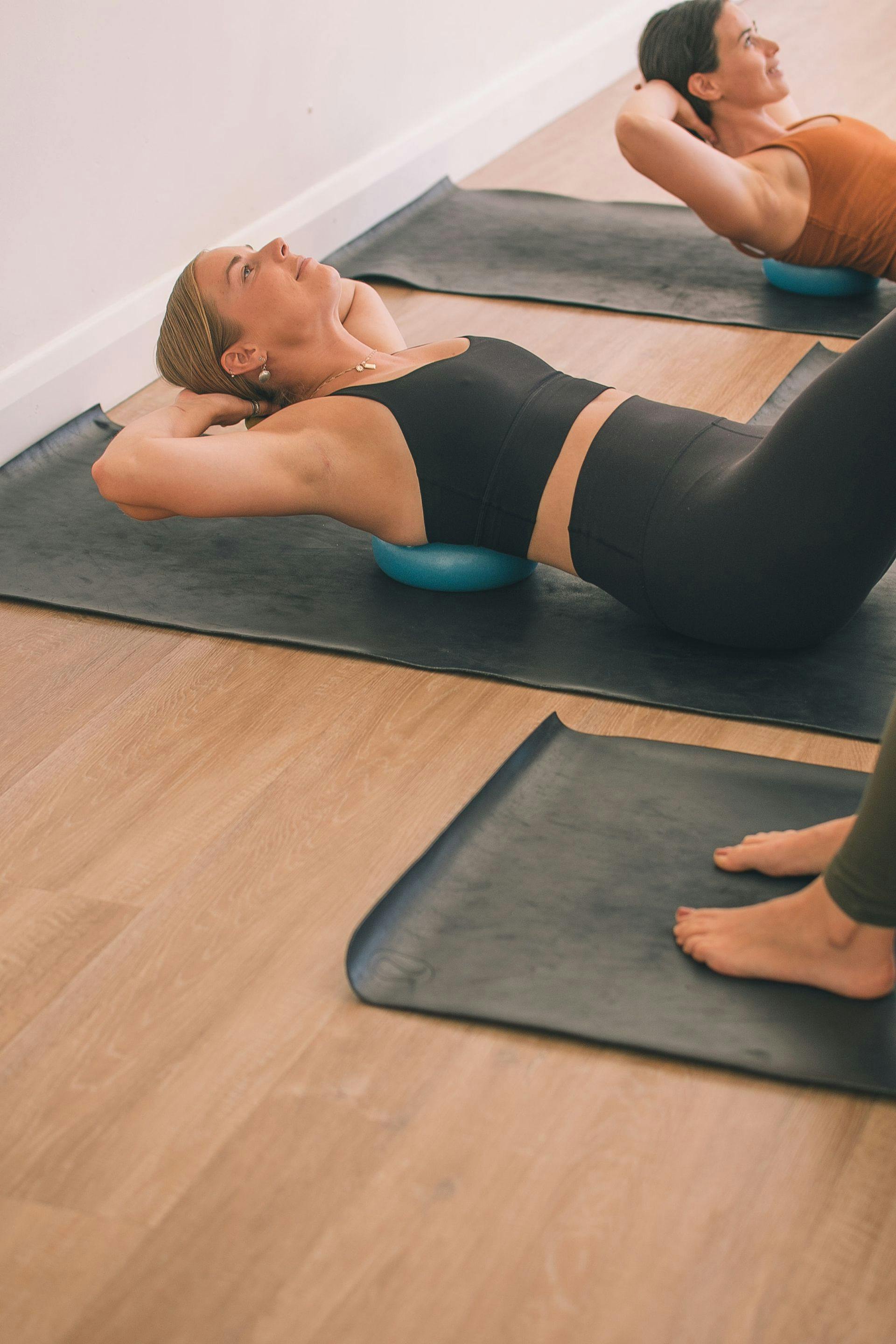19 May, 2022
What does your breath say about you?
Barre, yoga and movement gives us this chance to dedicate time to moving with and paying attention to our breath. It offers us an opportunity to put into practise the ways in which we can manage our breath amid challenge.

“The breath is the link between the mind and the body."
Life starts and ends with breath. Stress, illness, poor sleep, too much screen time, too little time outdoor (and our modern world) can influence the way we breathe and the way we live on a tangible level.
All of these factors impact our homeostasis (the stable state our body most likes to be in) causing us to be out of touch with nature and out of touch with ourselves. When we are out of balance, our entire physiology reacts and this impacts us on a physical and mental level.
Yet we all hold the key to changing this.
Breath awareness.
Breathing is the only system in the body that is both completely automatic, yet can also be controlled! Through breath management, we have the power to manage how we feel and how our body regulates itself. This includes our physical responses, but also our emotions too.
The importance of breath is not new knowledge, however the scientific and medical world is beginning to place a greater level of importance into researching the side effects of being disconnected to your breath. And the results are far reaching!
When we breathe in a shallow way, the body remains in a cyclical state of stress—our stress causing shallow breathing and our shallow breathing causing stress. This sets off the sympathetic nervous system, the branch of the autonomic nervous system that primes us for activity and response (our go-go-go state).
Long-term shallow breathing can seriously affect our health. Chronic stress that is associated with shallow breathing results in lower amounts of lymphocyte, a type of white blood cell that helps to defend the body from invading organisms, and lowers the amounts of proteins that signal other immune cells. The body is then at risk or contracting illnesses, stirring up pre-existing health conditions and prolonging healing in the body. Shallow breathing can also result in panic attacks, can cause fatigue, aggravate respiratory problems, and can be a precursor for cardiovascular issues. The list goes on!
Shallow pattern also creates tension in other parts of the body and can lead to a lot of everyday problems. When we breathe solely in our chests, we overload the muscles in our shoulders, necks, and chests to expand our lungs, which can result in neck pain, headaches, and an increased risk of injury. Put simply, you are only using a small portion of the muscles that are required to do a very important job!
Limiting the breath to the chest can cause our shoulders to slump forward and our whole posture to be effected. Poor posture also heightens our risk of injury, and (in the same reciprocal way that our breath and stress are interrelated) can further effect the quality of our breath!
Poor breath = poor posture = poorer breathing
Diaphragmatic breathing or belly breathing, on the other hand, can lower blood pressure, improve posture, slow our heart rate, relax muscles, decrease stress, and increase energy levels. The breath is a powerful, accessible, free and INNATE tool.
Taking a deep breath can help intense sensations, experiences, and emotions feel less threatening to the body. Deep breathing helps us to better connect to ourselves, noticing that life is a thread of moments, woven together that come and go.
Barre, yoga and movement gives us this chance to dedicate time to moving with and paying attention to our breath. It offers us an opportunity to put into practise the ways in which we can manage our breath amid challenge.
- How does your breath respond when you move into a stretch that you dislike?
- How does your breath respond when the teacher shouts "16 more pulses?"
- Can we use our breath to stay more focused and relaxed amongst challenging circumstances?
The quality of our breath throughout a barre or yoga class can say a lot about how we deal with the world around us off the mat too. Exercise, then, offers us a safe space to practice how we deal with the stresses and strains of everyday life, how we process these experiences and perhaps how we let them go.
Like the physical "gains" we experience through exercise, our breath too becomes stronger. We learn to become more in tune to the connection between body, mind and breath and the power we hold to better synthesise the body to be happy, strong and free.
So go for it. Take your hands to your belly now, close your eyes, and take 5 deep breaths. Your body and mind will thank you.